
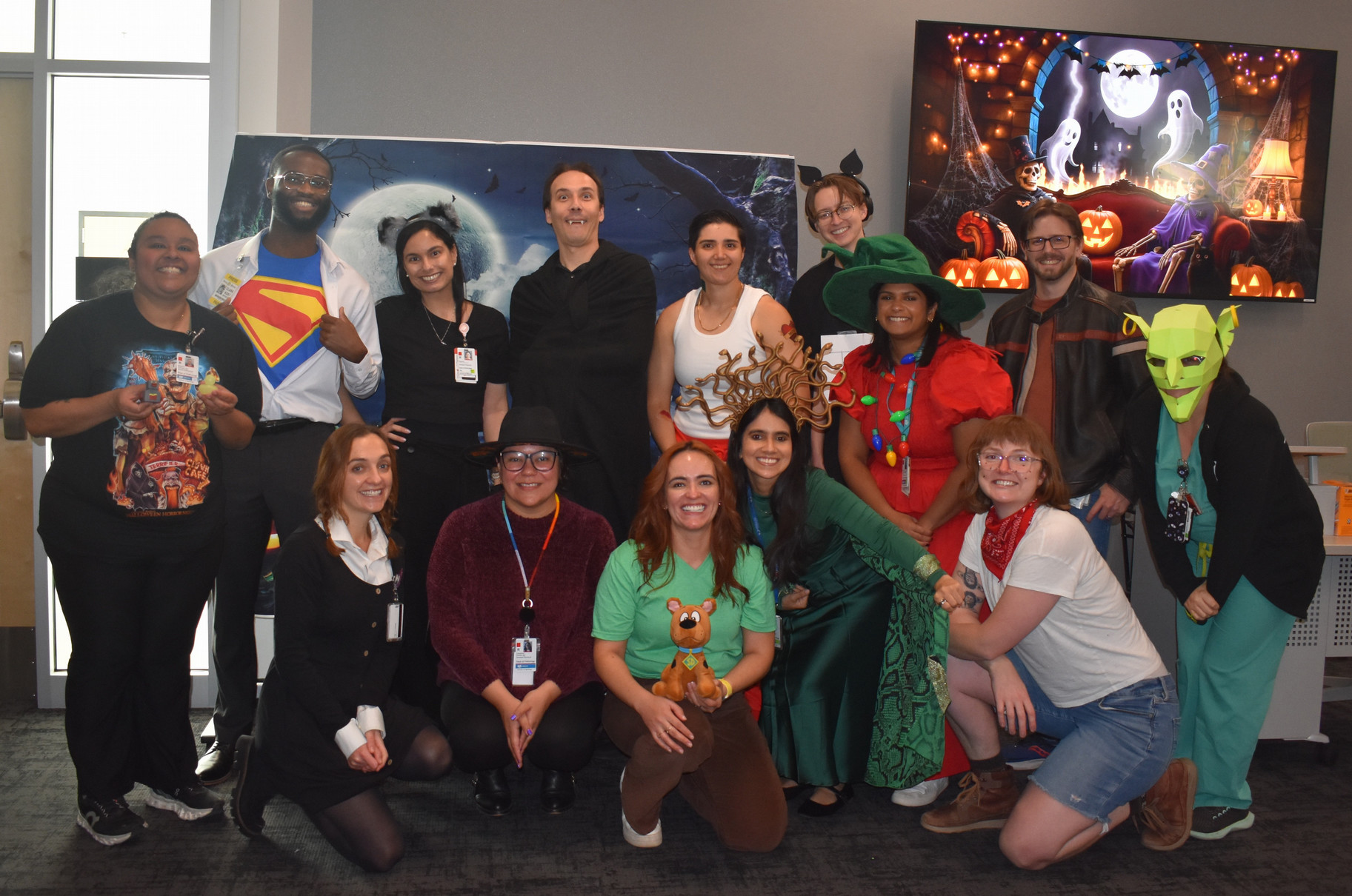
Resident 2025 Spooky Halloween Party!
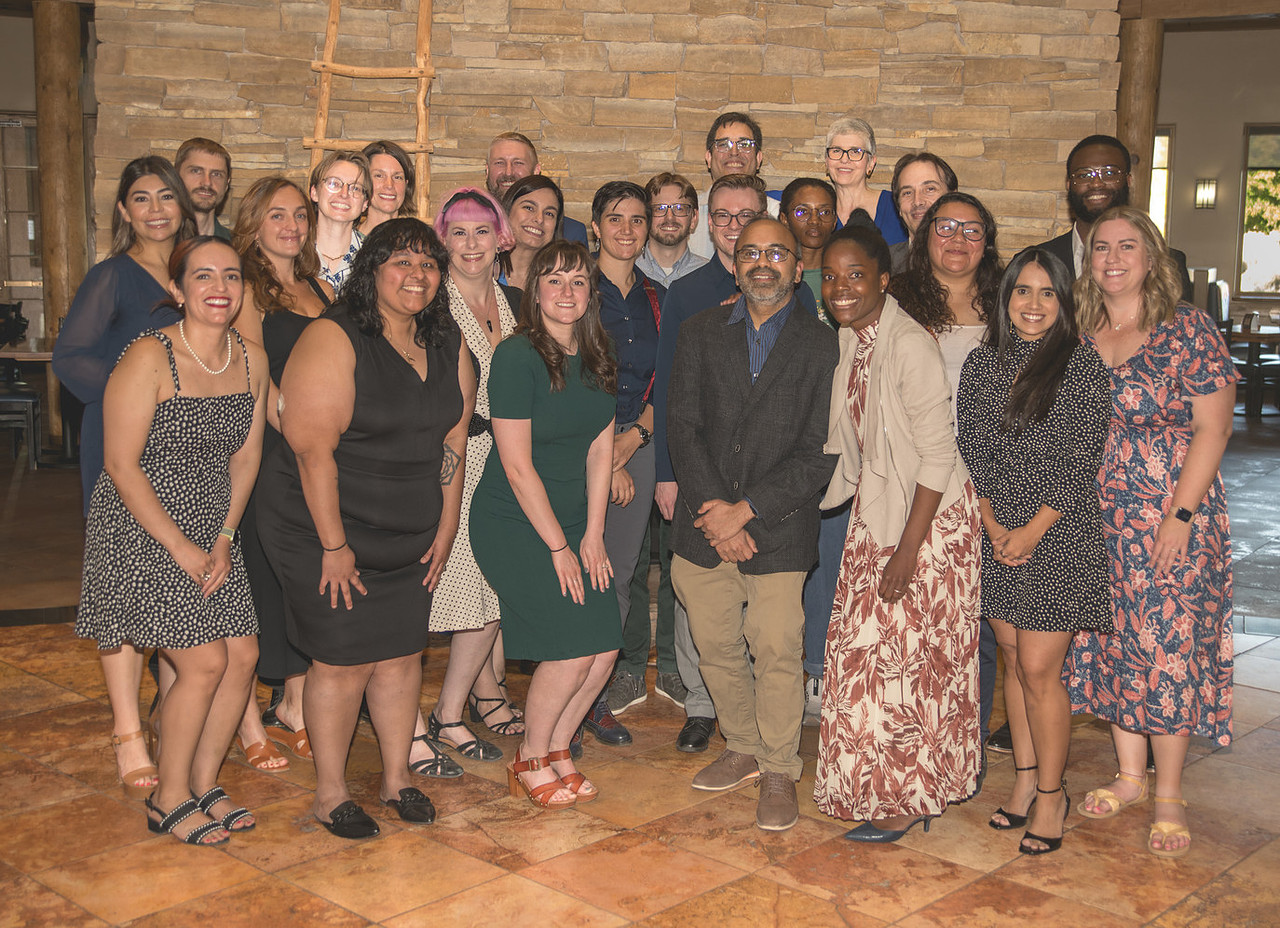
2025 Graduation Celebration
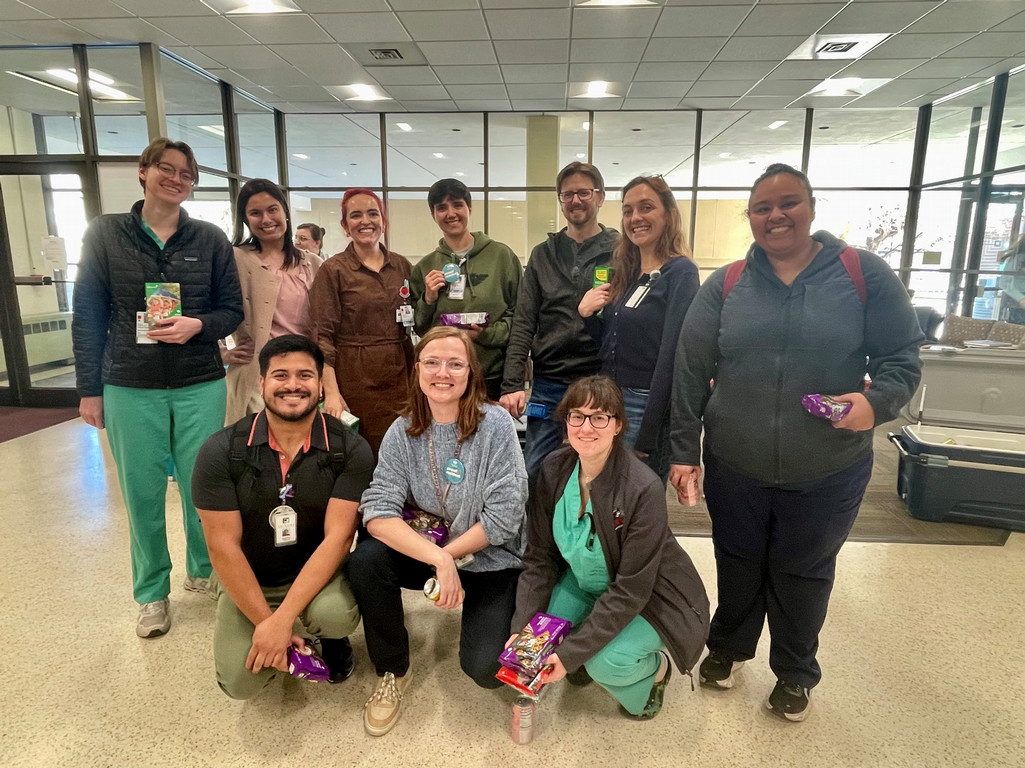
Thank A Resident Day – February 2025
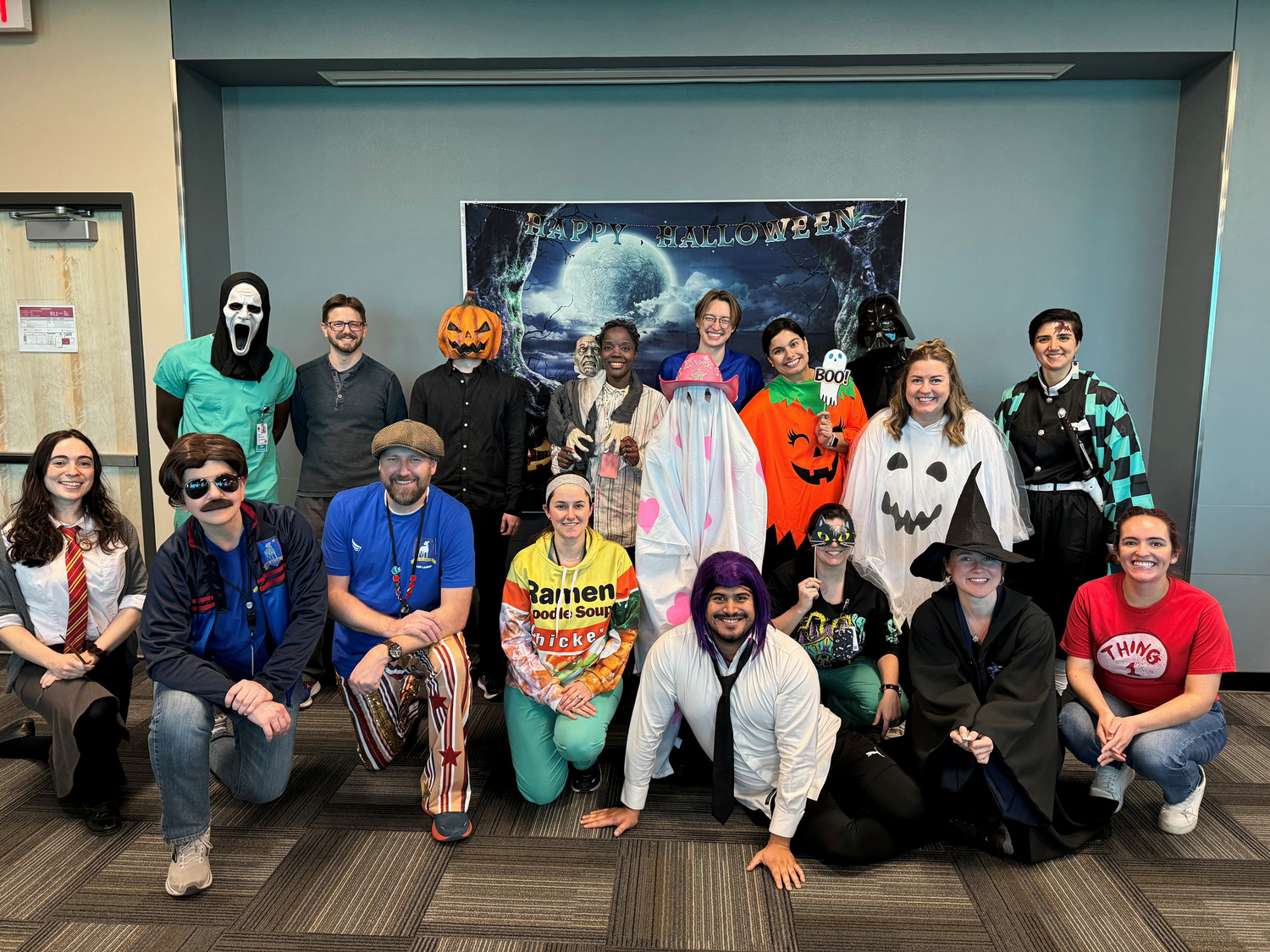
Resident Halloween Party 2024!
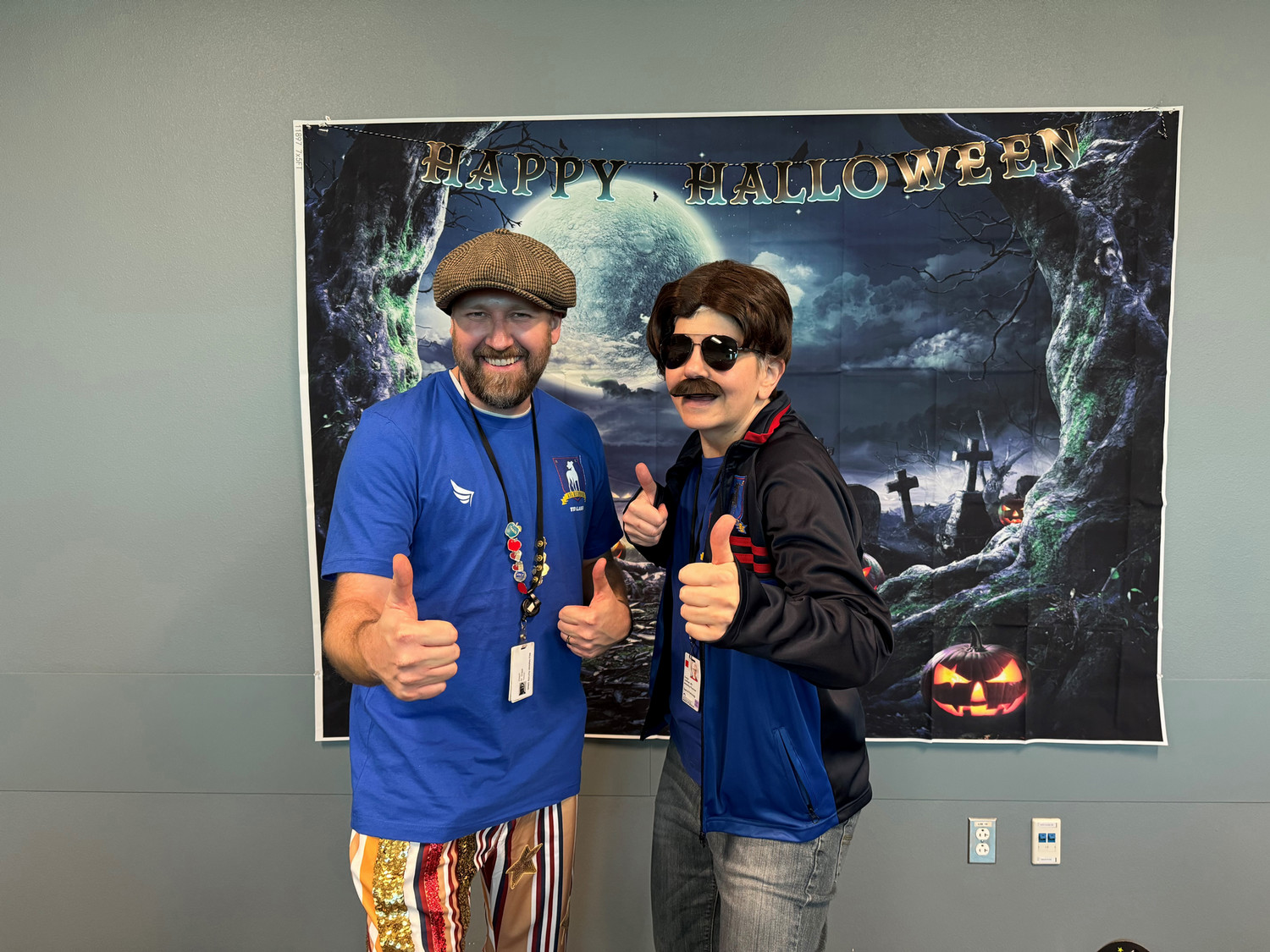
Program Director, Dr. Lockhart, and APD, Dr. Griggs
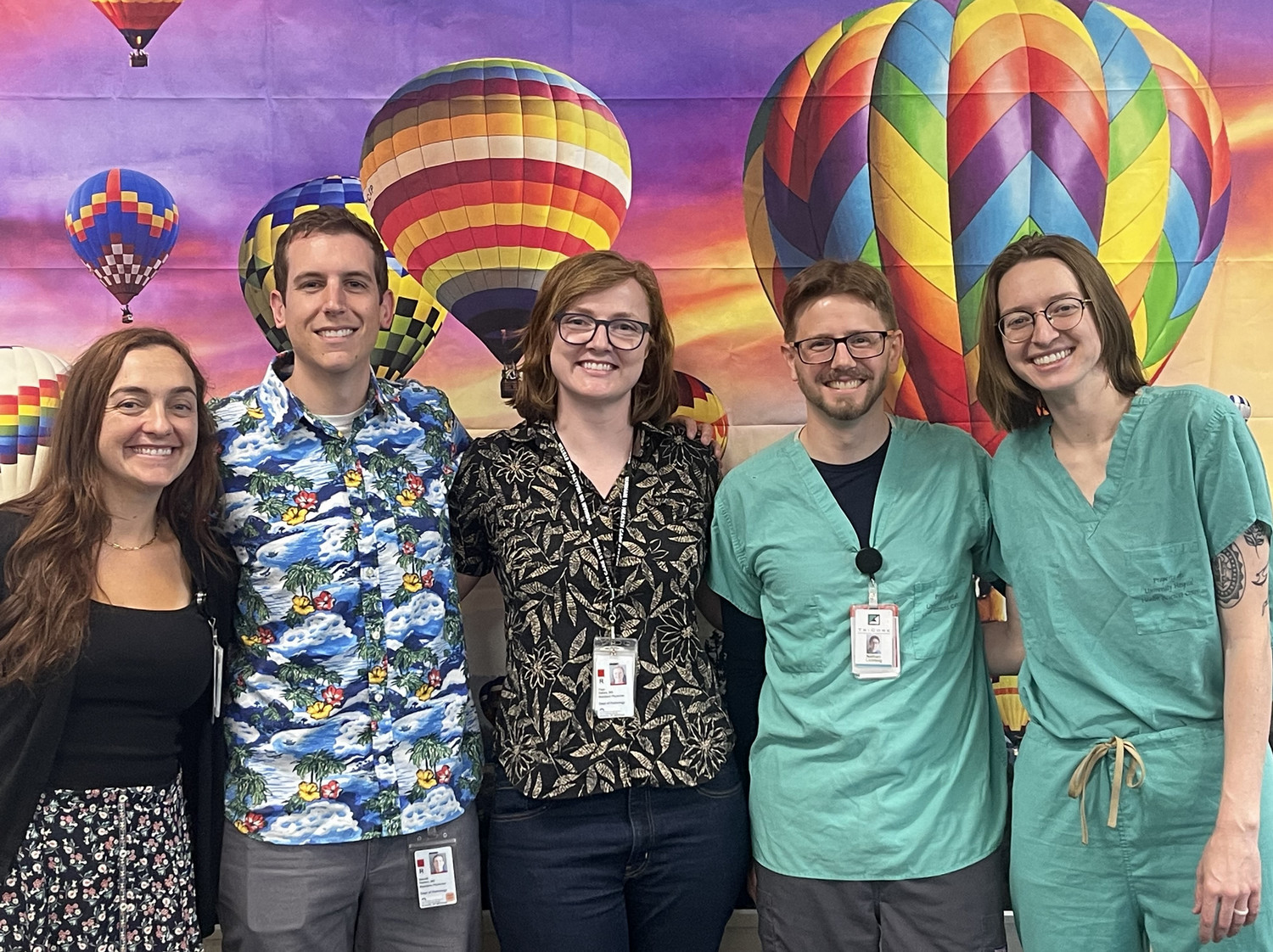
Third Year Residents at the 2024 Welcome Party
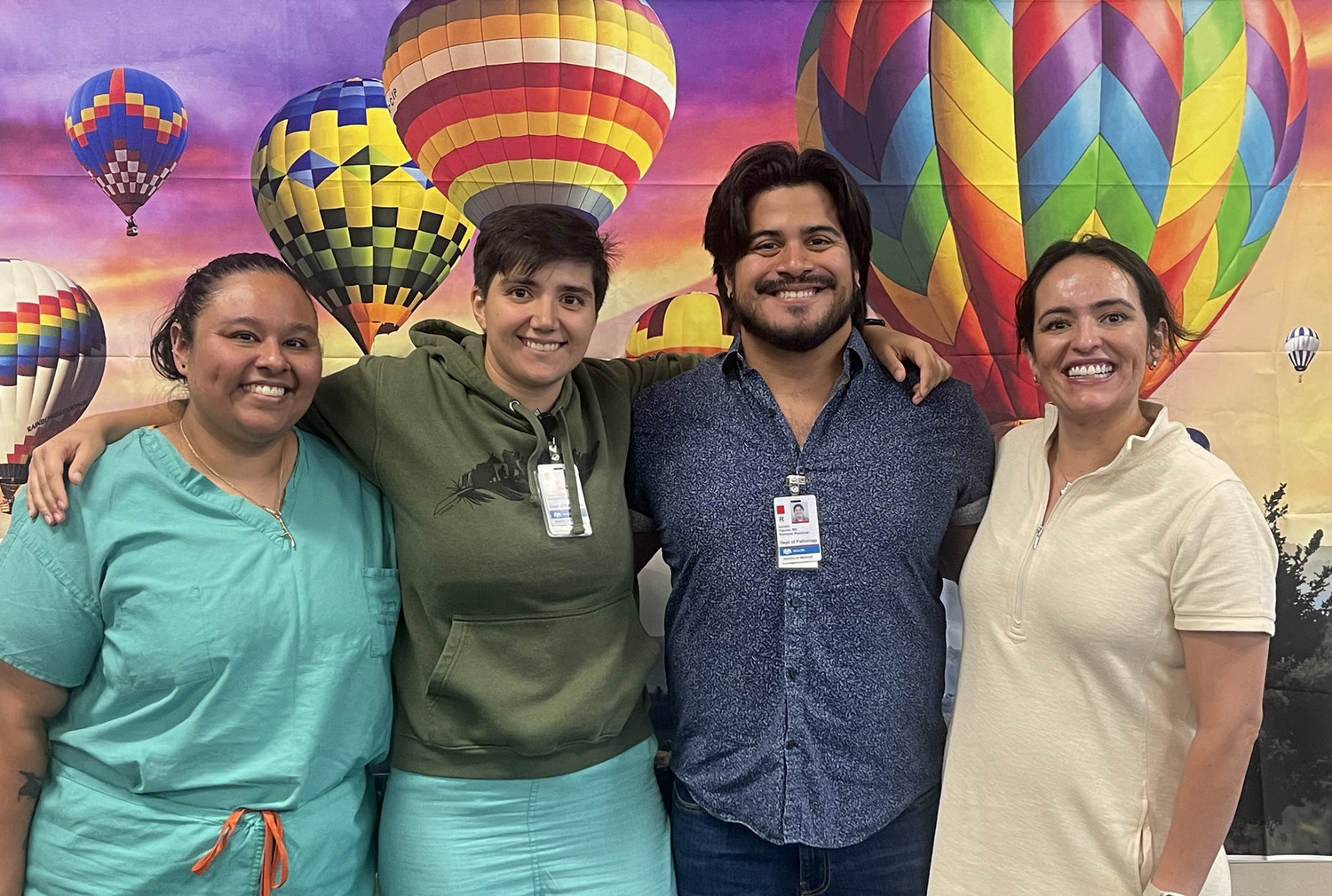
First Year Residents at the 2024 Welcome Party
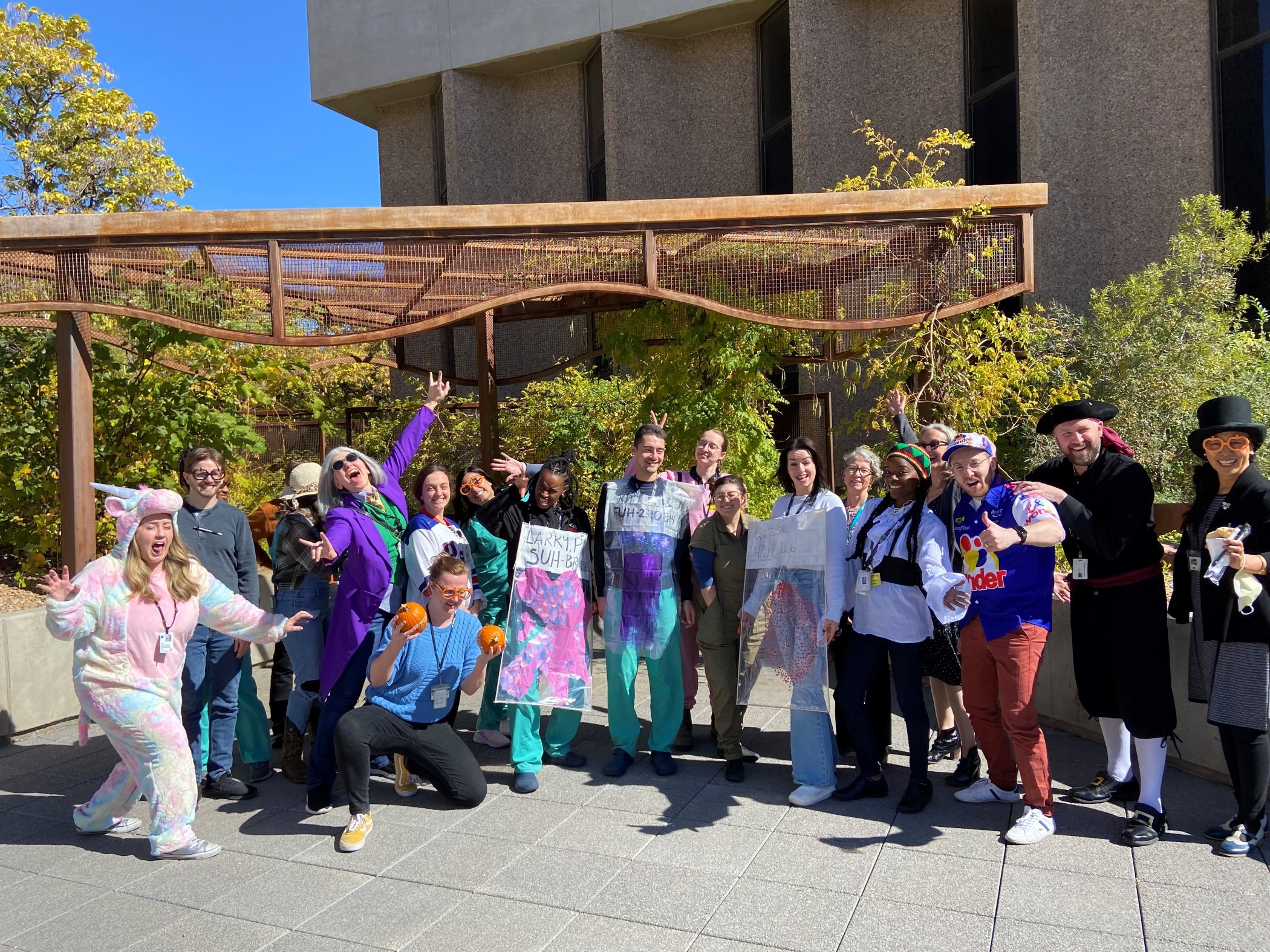
Resident Halloween Party 2023!
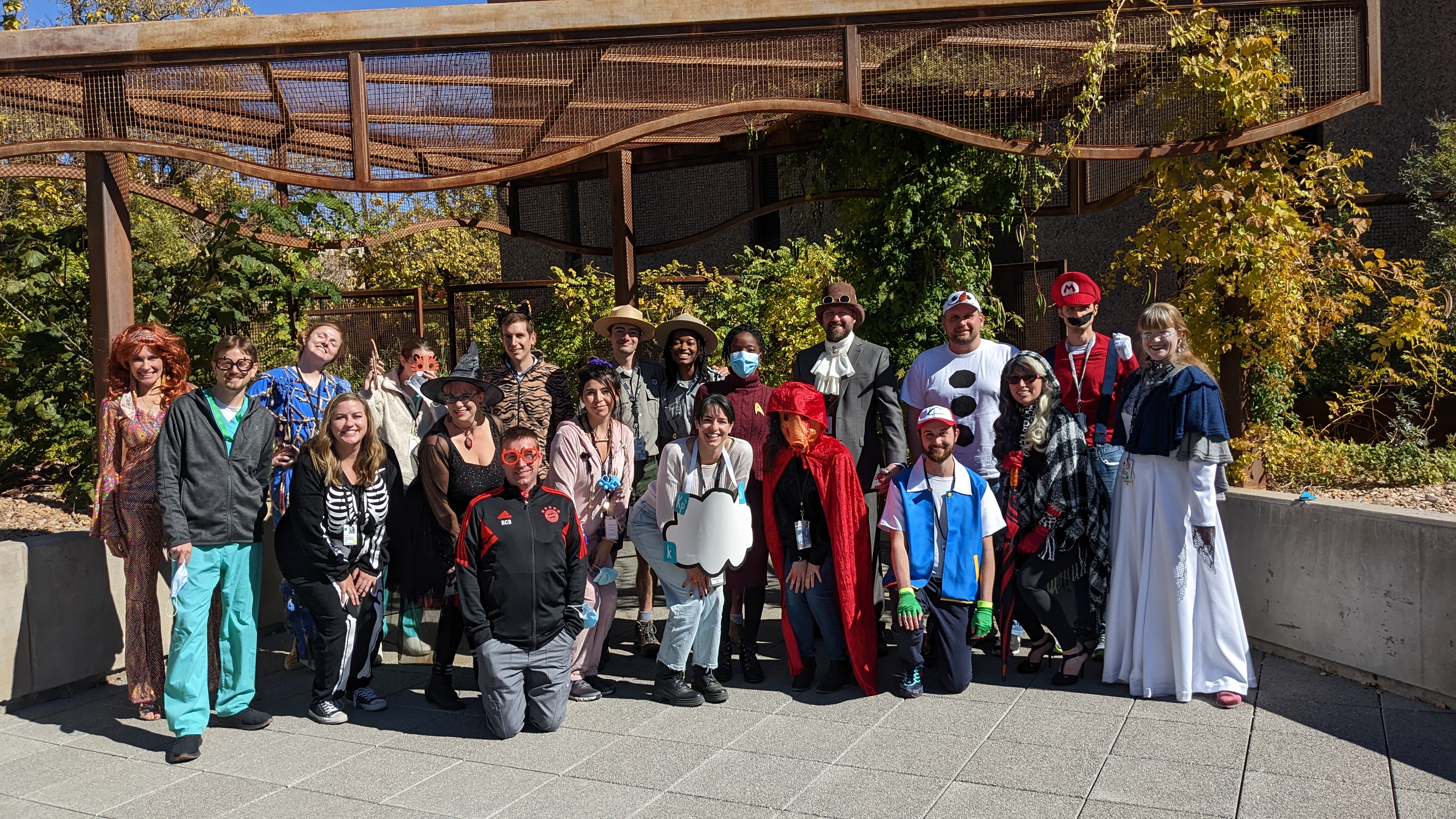
Resident Halloween Party 2022
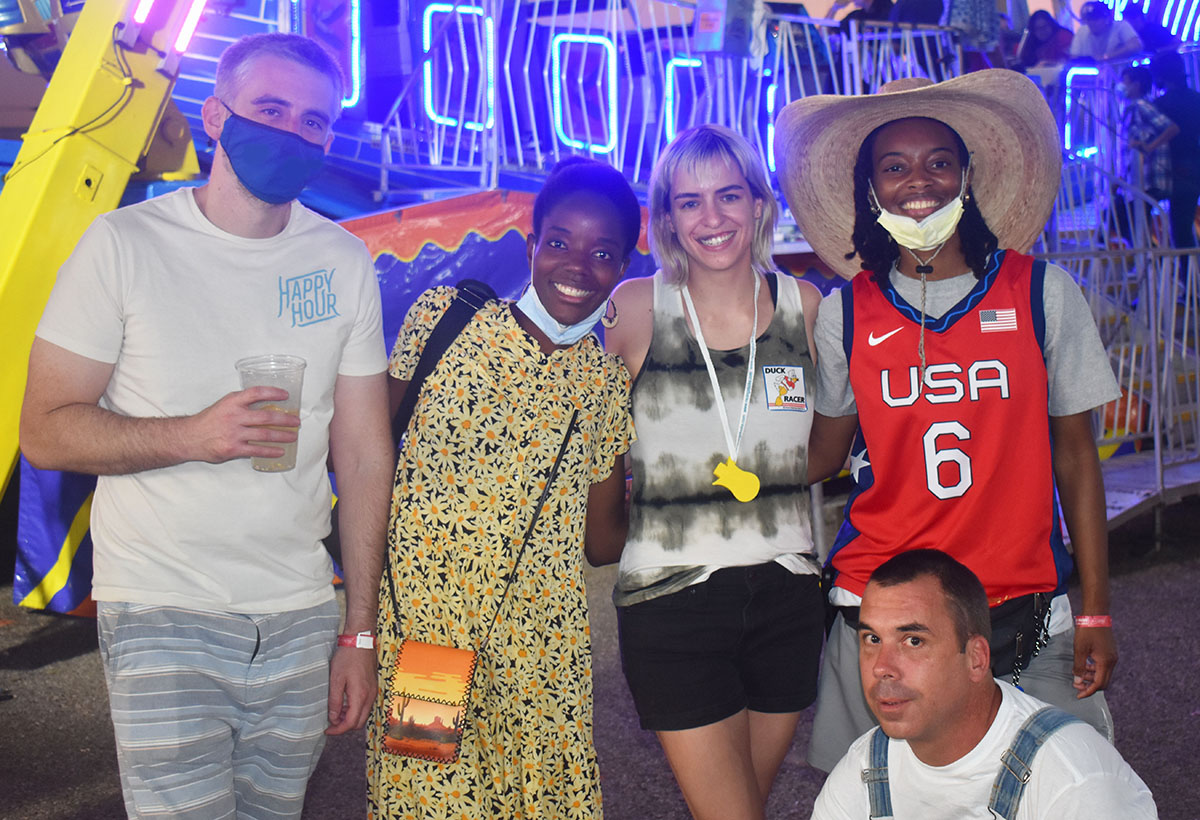
Residents at the New Mexico State Fair
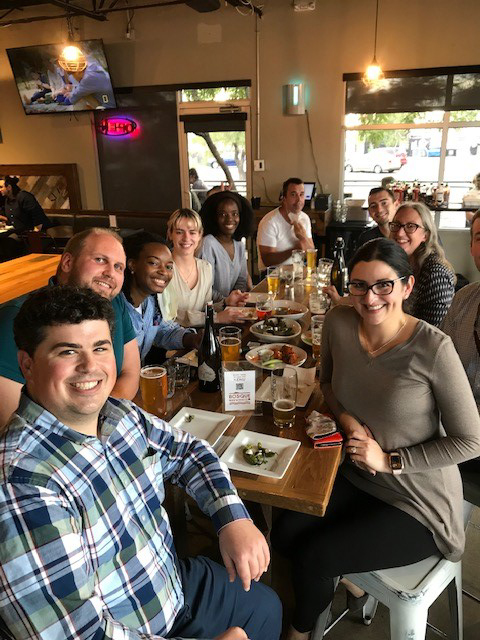
Resident/Fellow Social Hour
Program Strengths: We offer a broad, extensive training in anatomic pathology, including acclaimed subspecialty expertise in hematopathology and forensic pathology. In addition, there is practical and cutting-edge clinical pathology training, including active engagement in laboratory management, advanced molecular diagnostics, and experience with population health and applying laboratory medicine to the health of our communities at TriCore Reference Laboratories. In addition, there is a broad range of research opportunities throughout the department.
We are looking for a well-rounded candidate with a passion for and experience in pathology, a strong knowledge base, a rich background with diverse personal and professional experiences, and interest in living in or ties to the Southwest.
Our residents presently and historically have been notable for teamwork and a sense of humor and, perhaps most importantly, they work hard and they play hard. In other words, our residents perform very well on national measures of pathology wisdom (RISE exams, Boards), they tend to secure very desirable fellowships, and they engage in fruitful and challenging research projects.
In addition, our residents use their free time to hang out together (yes, karaoke is sometimes involved) and enjoy all of the amazing cultural and outdoor adventures in New Mexico. With mountains in our backyard, residents have plenty of time to ski, mountain bike, run, hike, camp, and fish. Of course, you can also golf year-round!
As a first-year resident, you spend two months each on surgical pathology rotations at the University Hospital and the Veterans Administration Medical Center (VAMC). This year also includes training on transfusion medicine and hematopathology as well as a month of microbiology and a junior cytology rotation. We want the first year to provide experience with services for which you may take calls and also be a foundation for your board preparation and future rotations.
A three-month rotation in autopsy pathology is done at the New Mexico Office of the Medical Investigator (NM OMI.) Our goal is to expose residents to fields in which they may want to apply for fellowships by the end of their second year.
The residents have a total of eight months of research and elective time over the four years, and the program encourages innovation and creativity in the design and use of this time. On all of the electives, we also highlight interdisciplinary and clinical use of this valuable time.
Many residents interested in forensics choose to do electives in forensic pathology, forensic anthropology and radiology, child abuse, and toxicology. Our general and subspecialty services in surgical pathology are particularly strong with numerous elective opportunities in dermatopathology, GI pathology, renal pathology, and neuropathology.
Our residents take call Mon-Thursday or Friday-Sunday of combined Anatomic Pathology/Clinical Pathology (AP/CP) call during the last quarter of your first year through the first half of your fourth year.
Based upon resident and faculty feedback, we recently added a junior cytology rotation and a senior blood bank rotation to the schedule. The residents have a total of eight months of research and elective time over the four years, and the program encourages innovation and creativity in the design and use of this time.
Our general and subspecialty services in Surgical Pathology are particularly strong. We have recently added elective opportunities in Bone and Soft Tissue Oncology and Pathology and GI Pathology. Other Anatomic Pathology elective months include Neuropathology, Renal Pathology, and Dermatopathology. In particular, we encourage interdisciplinary and clinical use of the elective time.
Our residents take one week of combined Anatomic Pathology/Clinical Pathology (AP/CP) call approximately four times a year. Call is not taken during your first year, although our first-year residents do attend our weekly call conference to discuss interesting and challenging cases that arise on call.

After Pathology residency training at the University of New Mexico, residents may pursue clinical fellowships or secure professional positions in academic medicine, private practice, or regional and national laboratories. UNM Pathology Residency Program graduates recently completed fellowships at:
Our Medical Student Liaisons are the point of contact for medical students interested in UNM Pathology and are happy help in answering general questions about our residency and pathology.
The Medical Student Liaisons are PGY3 Pathology Residents: Molly Biggs and Dara Udofia, and can be reached at HSC-PathAdmin@salud.unm.edu.